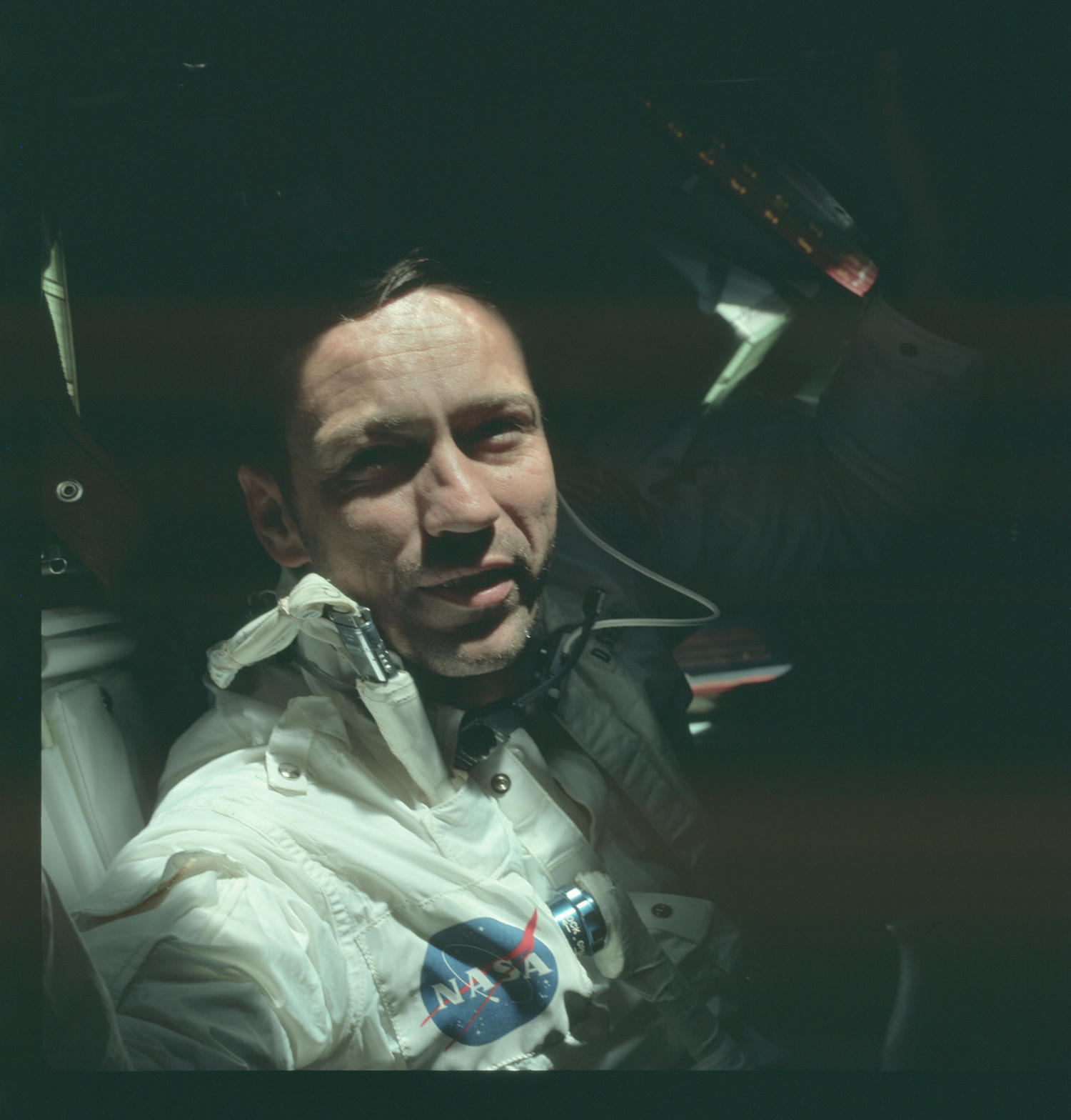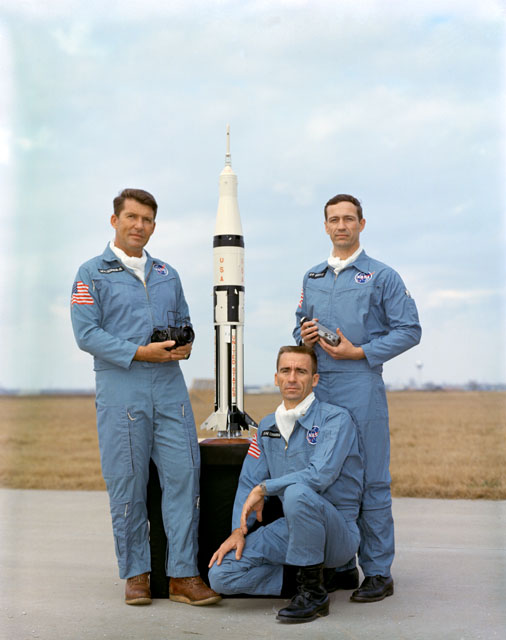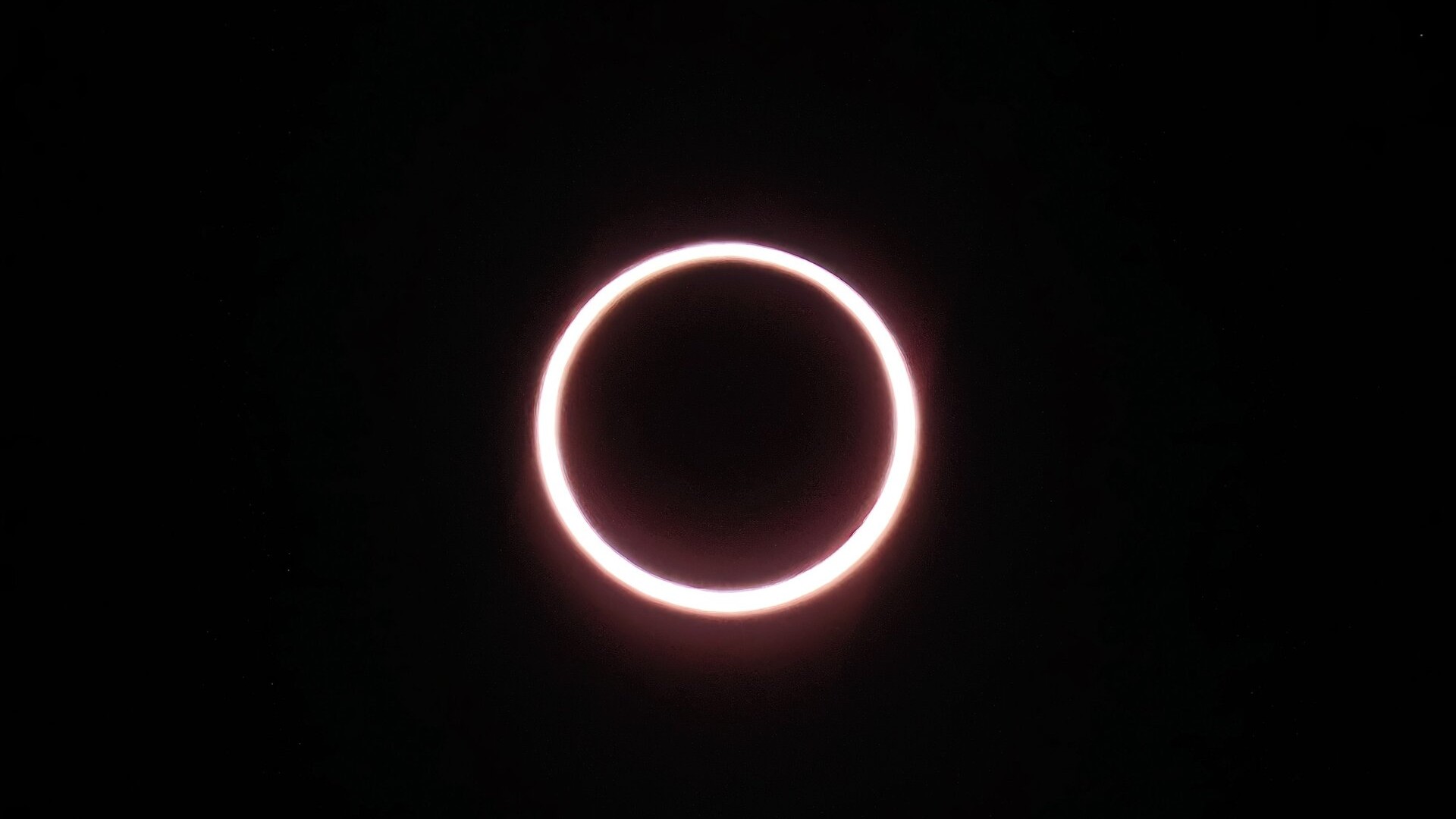Donn Eisele: Apollo 7 Pilot
Breaking space news, the latest updates on rocket launches, skywatching events and more!
You are now subscribed
Your newsletter sign-up was successful
Want to add more newsletters?
Donn Eisele was an astronaut on Apollo 7, the first mission of the Apollo moon program. Although Apollo 7 remained in Earth orbit, the mission was an important step for the program as it put the command module spacecraft to the test before the next mission to the moon, Apollo 8.
Eisele was born in Columbus, Ohio, on June 23, 1930. He received a Bachelor of Science degree from the United States Naval Academy in 1952 but chose a career in the Air Force, according to his NASA biography. He subsequently graduated from the Air Force Aerospace Research Pilot School at Edwards Air Force Base in California and earned a Master of Science degree in Astronautics in 1960 from the Air Force Institute of Technology.
Eisele went on to work as an experimental test pilot and project engineer at the Air Force Special Weapons Center at Kirtland Air Force Base in New Mexico.
In 1963, Eisele applied for NASA's third class of astronauts. [What It's Like to Become a NASA Astronaut: 10 Surprising Facts]
In personal notes discovered after Eisele's death, he wrote that he studied hard for the selection and made sure he was familiar with the technical details of Gemini spacecraft, the major space program at the time.
"I had come to Houston with my brain crammed full of technical tidbits and data on aeronautics and spaceflight," Eisele wrote. His notes formed the basis of his posthumous memoir, "Apollo Pilot" (University of Nebraska Press, 2017).
Eisele's hard work paid off and he was selected to become a NASA astronaut in October 1963.
Breaking space news, the latest updates on rocket launches, skywatching events and more!
NASA experience
NASA chose Eisele and two other astronauts, Walt Cunningham and Wally Schirra, to fly on Apollo 7. The mission came at a crucial moment for NASA as the agency was still trying to recover from the tragic Apollo 1 accident that killed three astronauts on Jan. 27, 1967.
NASA had since redesigned the command module and certified Apollo 7 ready for flight. Nonetheless, Schirra, the mission's commander, pushed to keep the mission plan as simple as possible so it would be easy to prioritize safety.
Apollo 7 launched without incident on Oct. 11, 1968, but the mission soon became challenging when Schirra developed a cold in orbit. It's unclear if all three crewmembers got sick, but Schirra's illness undoubtedly had an effect on Apollo 7's operations. Schirra canceled a planned television broadcast and his crewmembers complained about having too many tasks to complete.
The crew's complaints overshadowed what was otherwise a successful mission. Apollo 7 met all its major objectives, with Eisele participating in many of them. His NASA biography states that he performed maneuvers that enabled the crew to practice docking procedures in preparation for moon landings. The crew also tested the service-module propulsion engine and measured how well the spacecraft systems performed. And, they still managed to complete several television broadcasts from space — the first crew to do so.
For mission control director Chris Kraft, the most frustrating part of the Apollo 7 mission was when the crew refused to wear their helmets on the way back to Earth, as Kraft described in his memoir "Flight: My Life In Mission Control" (Dutton, 2001). The crew said they wanted to avoid having their eardrums pop due to congestion, but they also risked injury or death if the cabin suddenly depressurized.
The crew arrived safely back on Earth on Oct. 22, 1968. Kraft said he didn't want any of the crewmembers to fly in space again. Schirra had already planned on retiring, and Cunningham and Eisele never returned to space, although Eisele served as a backup command module pilot for Apollo 10.
By the time Eisele retired from the Air Force and left NASA in 1972, he had logged 4,200 hours flying time and 260 hours in space.
After NASA
After his time with NASA, Eisele acted as director of the U.S. Peace Corps in Thailand, according to his NASA biography. His later positions included sales manager for Marion Power Shovel Co., a manufacturer of large construction equipment, and he was a private and corporate account manager for Oppenheimer & Co., an investment banking company.
Eisele died of a heart attack on Dec. 2, 1987, at age 57, during a business trip in Tokyo, according to NASA. He was survived by his second wife, Susan Eisele Black, his two children with Susan, and four children from a previous marriage.
Years after Eisele's death, space historian Francis French, discovered a draft of a memoir written by Eisele. Eisele's widow, Susan, encouraged French to edit and publish Eisele's manuscript. When she read the final version she told French "it was if her late husband was back from the dead and talking to her," the San Diego Union-Tribune reported.
French told the San Diego Union-Tribune that putting together Eisele's memoir, titled "Apollo Pilot," was "totally a labor of love." At the request of the Eisele family, all the proceeds from the book are donated to a library program in Florida.

Elizabeth Howell (she/her), Ph.D., was a staff writer in the spaceflight channel between 2022 and 2024 specializing in Canadian space news. She was contributing writer for Space.com for 10 years from 2012 to 2024. Elizabeth's reporting includes multiple exclusives with the White House, leading world coverage about a lost-and-found space tomato on the International Space Station, witnessing five human spaceflight launches on two continents, flying parabolic, working inside a spacesuit, and participating in a simulated Mars mission. Her latest book, "Why Am I Taller?" (ECW Press, 2022) is co-written with astronaut Dave Williams.


